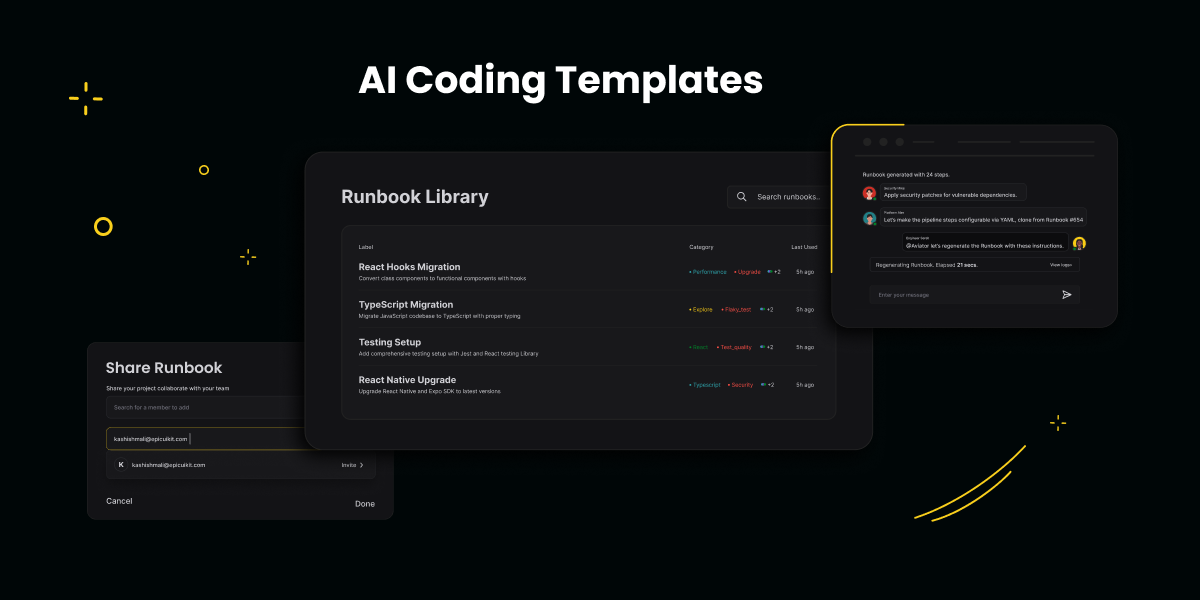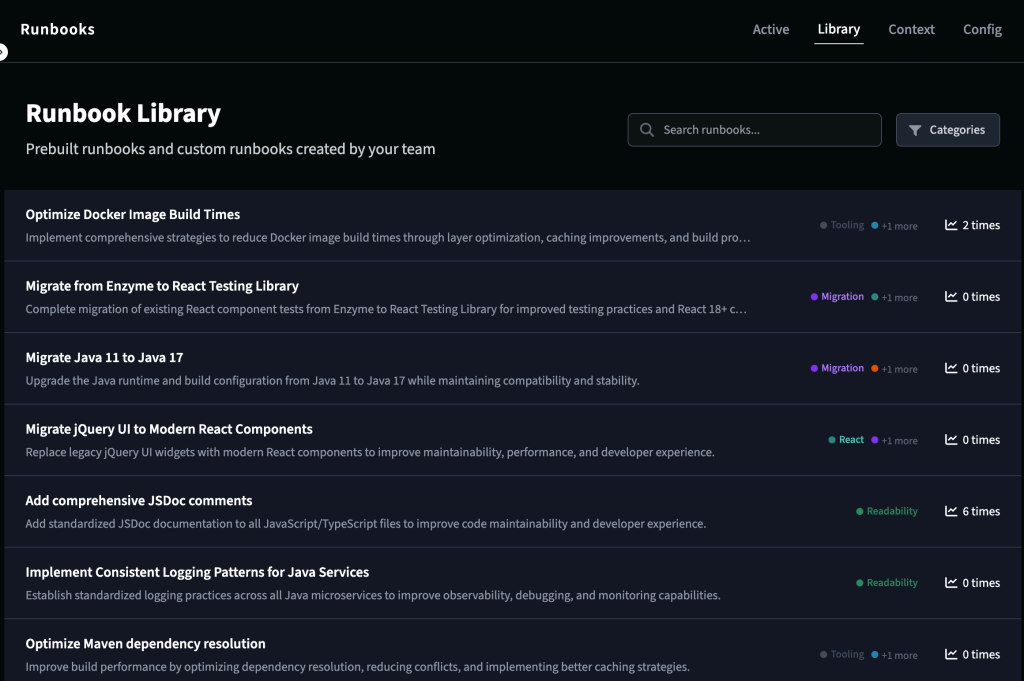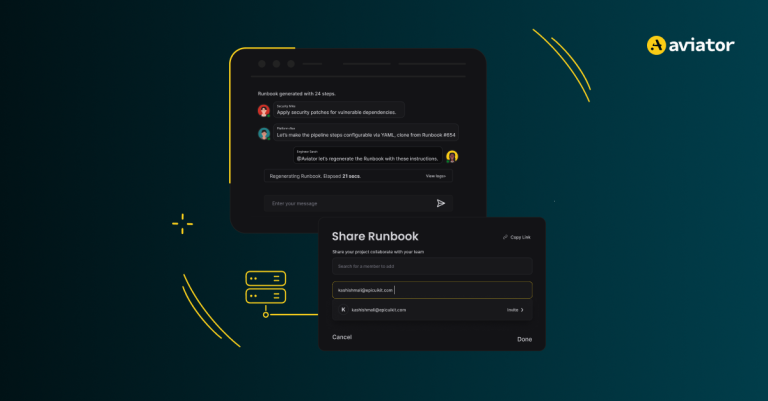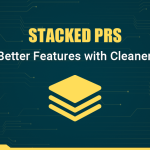Copy-Pasting Prompts? There’s a Smarter Way to Reuse (and Share) Your AI Workflows
Stop losing your best AI workflows to random markdown files.

If you’ve ever found yourself copy-pasting your best AI prompts or automation steps into an .md file, you’re not alone.
Developers do this all the time, whether to preserve hard-won prompt sequences for future projects, share repeatable workflows with teammates, or just minimize the risk of losing them midway through.
But copy-pasted markdowns aren’t scalable. What starts as “temporary documentation” gets buried in repos, lacks version tracking, and quickly drifts out of date.
There has to be a better way.
Enter: AI Coding Templates
Aviator Runbooks is a multiplayer-AI coding framework that leverages spec-driven development. It breaks down any task into a step-by-step execution plan that can be reviewed and executed remotely.
This framework enables developers to invite others to plan AI coding tasks and projects together, and it uses Claude Code agents to research, plan, and execute assigned tasks.
Find out more: Runbooks Format
Templates are reusable automation patterns designed to standardize common coding tasks — from code migrations and refactors to dependency upgrades and maintenance routines. Each template is a step-by-step guide written in structured markdown, designed to be executed by AI coding agents to automate complex development tasks.
These templates turn your ad hoc automation notes into structured, reusable workflows that your entire team can share, discover, and run.
A Runbooks Template is a predefined workflow that combines:
- Structured markdown, organized with hierarchical execution steps
- Categorization and tagging, for easy discovery and reuse
- Reusable patterns, for repetitive coding tasks
- Usage tracking, so you can see which templates are most effective
Templates can be great starting points for creating new Runbooks. Instead of starting from scratch every time, teams can create Runbooks for proven automation patterns, standardizing how they handle complex, repetitive engineering work.
Built for Sharing: Runbooks as Multiplayer Knowledge
Aviator Runbooks can benefit individual developers, but they really shine and were designed for teams. Every Runbook and template lives in a shared, discoverable workspace, so engineers can collaborate, review, and iterate together.
When one developer builds or improves a Runbook, the entire organization benefits. This “multiplayer” model turns your engineering playbooks into a living knowledge system, where best practices evolve through real-world usage, feedback, and shared ownership.
Instead of static documentation, Runbooks become interactive, versioned, and transparent automation that every developer can contribute to and learn from.
Two Ways to Use Templates: Prebuilt or Custom-Made
Teams can get started in two ways:
- Use prebuilt templates from Aviator’s open-source Runbook Library on GitHub.
These cover common workflows like framework migrations, refactoring, and modernization. They’re designed to be codebase-agnostic and general enough to apply across projects, but adaptable through Aviator’s Runbook agents, which tailor the template to your repository’s context. - Create custom templates for your own organization.
These templates capture your team’s unique engineering practices and internal standards. Once published, they’re shared across your company — helping everyone follow the same playbook for recurring AI coding tasks.

Thoughtsworks Technology Radar highlights curated shared instructions for software teams as a practice they advise engineering teams that actively use AI to adopt as the next step to move beyond individual prompting toward systematical application of AI among teams and individuals.
Runbooks Templates turn a team’s AI coding best practices into living, versioned, reusable workflows that accelerate every future project.
Instead of fleeting prompts, teams define versioned, executable specifications—shared “runbooks” that describe how agents should plan, execute, and review code. Engineers can co-author, review, and evolve these specs just like code, creating a durable, multiplayer foundation for agentic development.
Explore the library: Aviator Runbooks on GitHub
Learn more: aviator.co/runbooks










